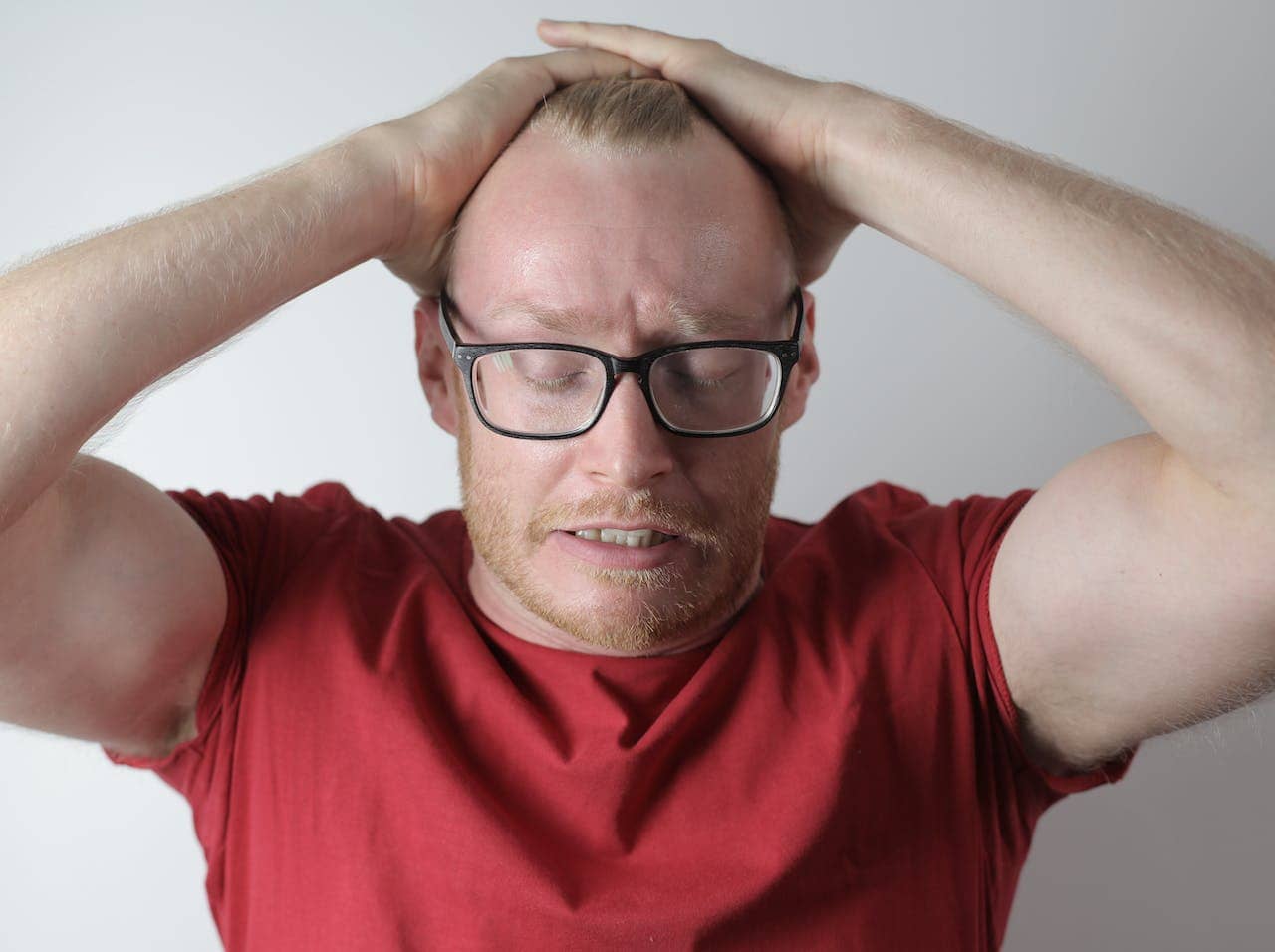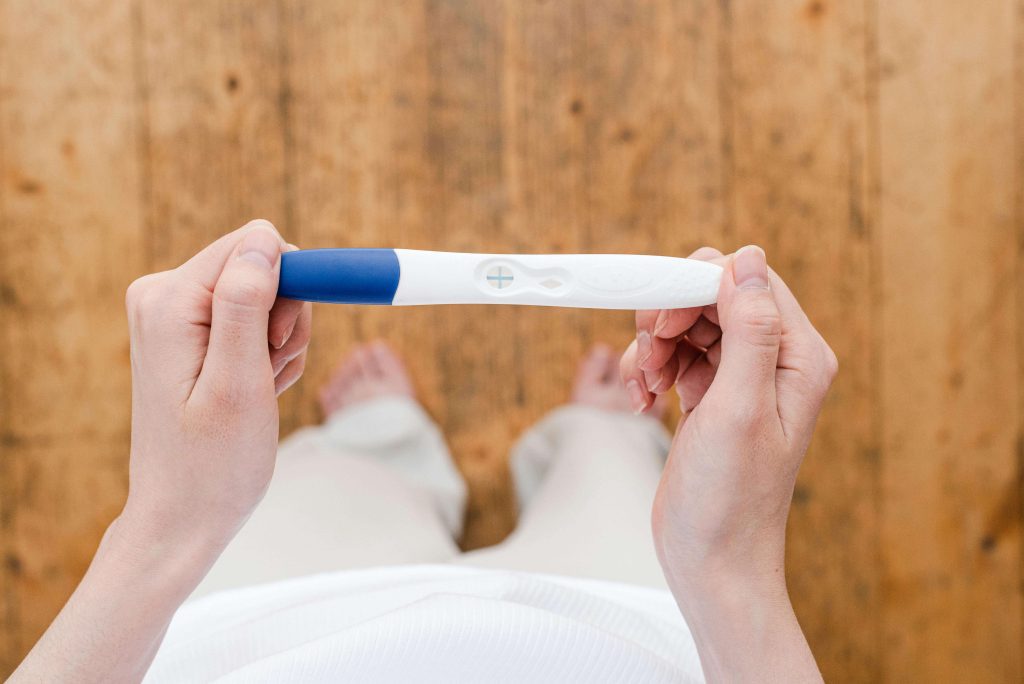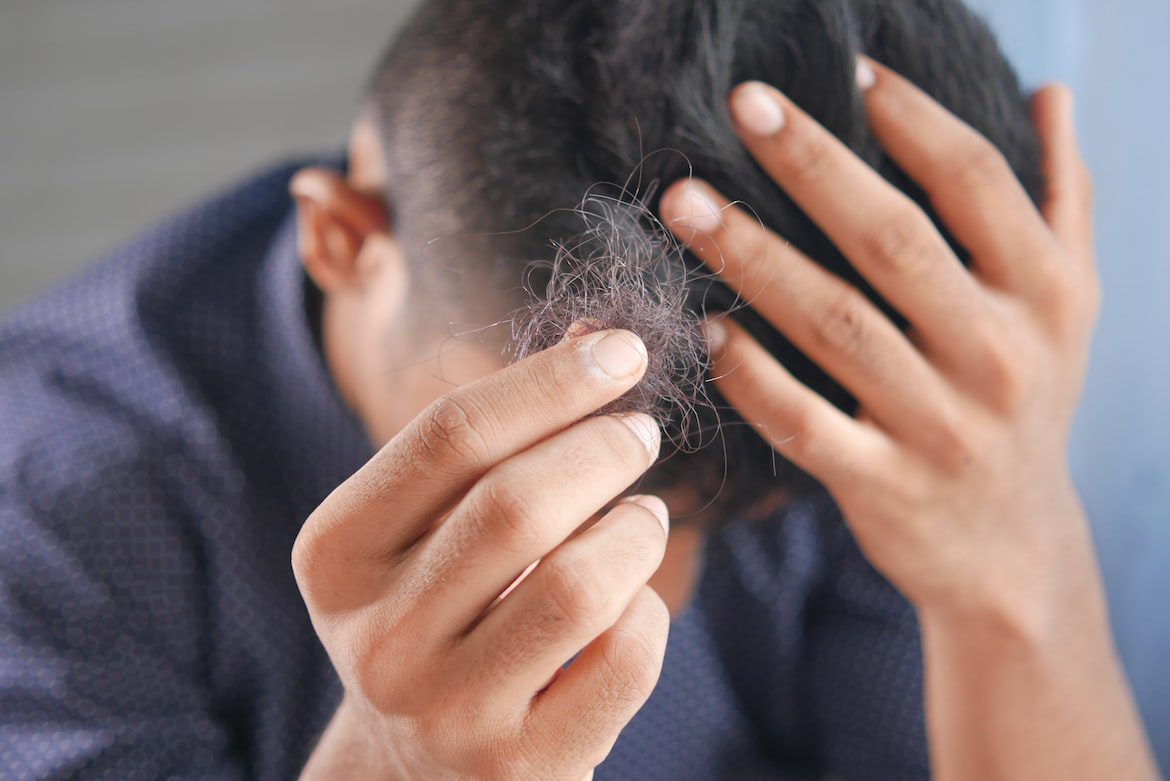Causes of Sudden Hair Loss

Sudden hair loss can be a distressing experience, leaving you searching for answers and solutions. Whether you’ve noticed a handful of strands in the shower or a concerning bald spot, unexplained hair loss can have a significant impact on your self-esteem and overall well-being.
In this blog post, we’ll delve into the causes of sudden hair loss, shedding light on the various factors that may contribute to this issue and offering insights into potential solutions.
Are You Experiencing Sudden Hair Loss?
A certain degree of hair shedding is normal. Even people who are not experiencing any hair loss will shed 50-100 hairs per day. While billions of men and women around the world suffer from progressive hair thinning and balding, this hair loss normally occurs gradually, over many years. Hair loss of this nature is typically a cosmetic issue and not a serious risk to physical health.
Some, however, may experience hair loss that is sudden, rapid, and without an obvious explanation. Hair may come out in large clumps, or thin rapidly over several weeks. Sudden hair loss of this nature should be a cause for concern, as it may be a symptom of a more serious underlying condition requiring medical treatment. If you are experiencing rapid, unexplained hair loss, the first thing you should do is consult your primary care doctor or dermatologist.
What are the Causes of Sudden Hair loss?
Sudden, unexplained hair loss can have a number of different potential causes:
1. Telogen Effluvium
Telogen effluvium is one of the most common causes of sudden hair loss. In this condition, external factors causing significant metabolic stress can trigger a disturbance in the hair growth cycle, leading a large number of hair follicles to prematurely enter the resting (telogen) phase and shed. This can be triggered by various factors, such as extreme psychological stress, trauma, illness, surgery, change in medication, significant weight loss, and more.
2. Alopecia Areata
Alopecia areata is an autoimmune disorder in which the immune system mistakenly attacks hair follicles, leading to hair loss in small, round patches. The exact cause of this condition remains unclear, but it is believed to have a genetic component.
3. Dietary Changes
Trying out that new fad diet? This may be causing your sudden hair loss. A balanced diet is vital for maintaining healthy hair. Inadequate intake of essential nutrients, such as iron, biotin, and certain vitamins, can lead to hair loss. Excessive fasting or extremely low-calorie diets may also cause hair loss due to a deficiency of key macronutrients.
4. Hormonal Changes
Hormonal imbalances, often associated with conditions like polycystic ovary syndrome (PCOS), thyroid disorders, pregnancy, and menopause, can contribute to sudden hair loss. Hormones play a critical role in regulating hair growth, and any disruptions can lead to shedding.
5. Medications and Treatments
Certain medications and medical treatments, such as chemotherapy, can cause hair loss as a side effect. If you suspect that a medication is contributing to your hair loss, consult your healthcare provider to explore alternative options.
Coping with Sudden Hair Loss
If you’re experiencing unexplained hair loss, there’s no need to panic. Several steps can help you manage the issue and potentially reverse or slow down the loss:
1. Consult a Healthcare Professional
The first and most crucial step is to consult a dermatologist or healthcare provider who specializes in hair disorders. They can diagnose the underlying cause of your hair loss and recommend an appropriate treatment plan.
2. Nutrition and Diet
Ensure you consume a well-balanced diet rich in essential nutrients that promote healthy hair growth. Supplements can be beneficial if you have deficiencies, but it’s essential to consult a healthcare professional before starting any supplementation regimen.
3. Stress Management
Stress can trigger sudden hair loss, so practicing stress-reduction techniques such as meditation, yoga, or deep breathing exercises can be helpful.
4. Gentle Hair Care
Be gentle with your hair. Avoid tight hairstyles, excessive heat styling, and harsh hair products. Use a mild, sulfate-free shampoo and conditioner, and limit the use of hot styling tools.
5. Medical Treatments
Depending on the cause of your hair loss, your healthcare provider may recommend medical treatments, such as topical minoxidil, LLLT, corticosteroid injections, or immunotherapy, to stimulate hair regrowth.
In Conclusion
Sudden, unexplained hair loss can be a challenging experience. However, understanding the potential causes and taking proactive steps can help you regain control over your hair health.
Remember that identifying the underlying cause is the first and most critical step in addressing sudden hair loss, so consult a healthcare professional for an accurate diagnosis and personalized treatment plan. With the right approach, you can absolutely have a healthy, full head of hair again.




